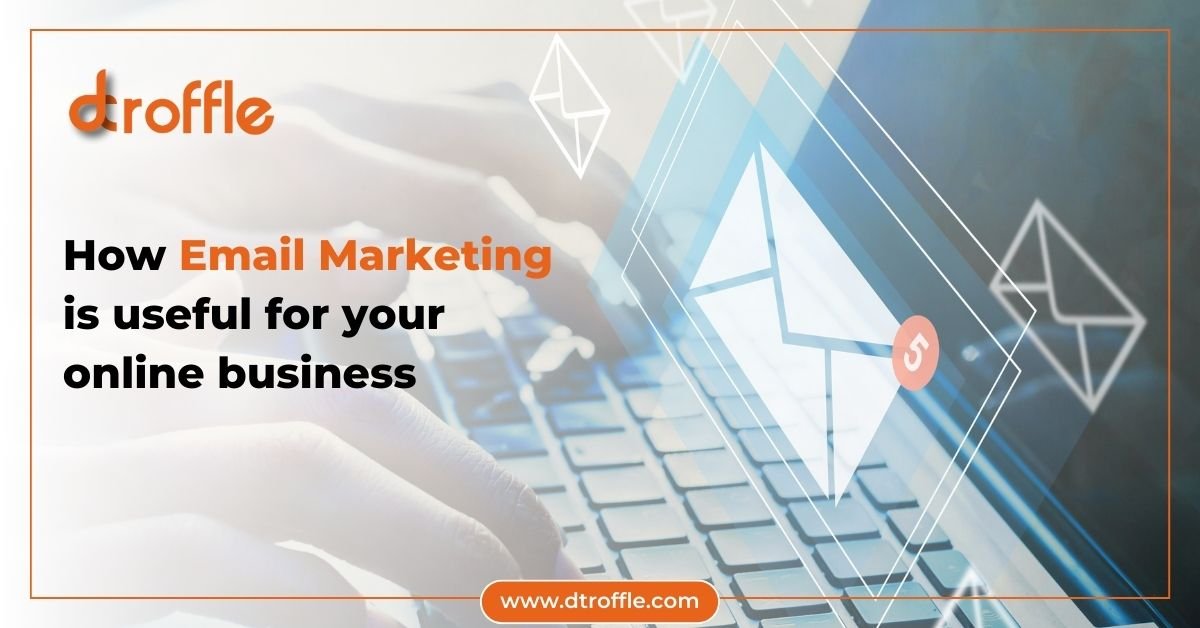Email marketing is a powerful tool for online businesses, offering a direct and effective way to communicate with customers, drive sales, and build brand loyalty. By leveraging the capabilities of email marketing, businesses can engage their audience with personalized content, promote products and services, and foster long-term relationships. Here are the key benefits and strategies of using email marketing for your online business.
1. Direct Communication with Customers
Email marketing provides a direct line of communication to your customers. Unlike social media platforms, where algorithm changes can affect visibility, emails land directly in the recipient’s inbox. This direct access allows businesses to share important updates, promotions, and personalized content that can drive engagement and sales.
2. Personalization and Targeting
With email marketing, you can segment your audience based on various criteria, such as demographics, purchase history, and behavior. This segmentation allows for highly personalized content that resonates with each segment of your audience. Personalized emails can include tailored product recommendations, special offers for loyal customers, and content relevant to their interests, increasing the likelihood of conversions.
3. Cost-Effective Marketing Strategy
Email marketing is one of the most cost-effective marketing strategies available. It requires minimal investment compared to traditional advertising methods. With email marketing platforms like Mailchimp, Constant Contact, and HubSpot, businesses can automate campaigns, track performance, and optimize their strategies without significant expenditure.
4. Enhanced Customer Engagement
Engaging customers through regular, valuable communication helps keep your brand top-of-mind. Emails can be used to share informative blog posts, company news, product launches, and special promotions. By consistently providing value, businesses can enhance customer loyalty and encourage repeat purchases.
5. Measurable Results
Email marketing provides detailed analytics that helps businesses track the performance of their campaigns. Metrics such as open rates, click-through rates, conversion rates, and unsubscribe rates offer insights into what works and what doesn’t. This data-driven approach enables businesses to refine their strategies for better results over time.
6. Increased Website Traffic
Emails are an excellent way to drive traffic to your website. By including compelling calls-to-action (CTAs) and links to relevant content or product pages, businesses can encourage recipients to visit their sites. This increased traffic can lead to higher sales and better search engine rankings.
7. Building Strong Customer Relationships
Regularly communicating with your customers through email helps build and maintain strong relationships. Welcome emails for new subscribers, thank-you emails for purchases, and follow-up emails after transactions show that you value your customers. Engaging with customers on a personal level fosters trust and loyalty.
8. Promoting Products and Services
Email marketing is an effective way to promote new products, special offers, and seasonal sales. By sending targeted promotional emails, businesses can generate excitement and drive sales. Limited-time offers and exclusive discounts can create a sense of urgency, prompting customers to act quickly.
9. Re-Engaging Inactive Customers
Email marketing allows businesses to re-engage inactive customers. Win-back campaigns, which include special offers or personalized messages, can entice customers who haven’t interacted with your brand for a while to return and make a purchase.
10. Automation and Efficiency
Email marketing platforms offer automation features that save time and effort. Automated workflows can handle tasks such as welcome emails, abandoned cart reminders, and post-purchase follow-ups. These automated emails ensure timely and relevant communication without manual intervention.
Conclusion
Email marketing is a versatile and powerful tool for online businesses. It offers direct communication, personalization, cost-effectiveness, and measurable results, all of which contribute to increased customer engagement, sales, and loyalty. By leveraging the benefits of email marketing and using data-driven strategies, businesses can effectively promote their products and services, drive website traffic, and build strong, lasting relationships with their customers.








